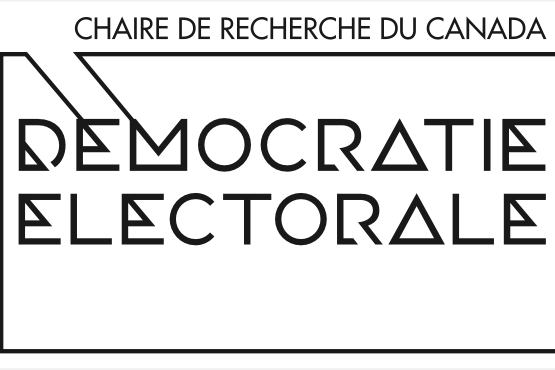2024
Activities News
The Future of Electoral Democracy Conference, 29-30 Nov 2024
The Future of Electoral Democracy Conference Université de Montréal Pavillon Lionel-Groulx, C-6070-9 29-30 November 2024 Join us for a two-day conference organized by the Canada Research Chair in electoral Democracy. The full program can be consulted here. To register for the conference, click this link. Read more
Activities News
Electoral Chair’s Seminar – 20 November
Mapping ethics self-regulation within political parties: Norms, oversight and enforcement Luís de Sousa-ICS-ULisboa Political parties are highly regulated organizations, both internally and externally, and yet, levels of trust in political parties are systematically low across many countries. Low levels of trust are associated to party related scandals and a poor record in upholding higher ethical […] Read more
Activities News
Electoral Chair’s Seminar – 13 November
Partisan Conformity and Political (In)tolerance Seyoung Jung-Université de Québec à Montréal As partisan prejudice intensifies, citizens exhibit increasing intolerance towards the rights of opposing groups. Paying attention to partisan dynamics, this study investigates how partisan identity and conformity shape political (in)tolerance. Using a vignette experiment, I test whether a request for partisan conformity affects individuals’ […] Read more
Activities News
Electoral Chair’s Seminar – 30 October
Happiness, Anger, and Satisfaction with Democracy: Unravelling the Emotional Drivers of the Winner-Loser Gap Bjarn Eck-Université Libre de Bruxelles Elections boost satisfaction with democracy, but more strongly for electoral winners than for electoral losers. While the presence of the winner-loser gap is widely acknowledged, its underlying mechanisms remain less understood. One prominent explanation emphasizes the […] Read more
Activities News
Electoral Chair’s Seminar – 23 October
La participation électorale des personnes immigrantes au Canada Mélyann Guévremont-Université de Sherbrooke et Jean-François Daoust-Université de Sherbrooke Studying electoral participation is essential. This research project aims to better understand the individual factors associated with the electoral participation of a group known to be less politically active in Canada, despite its growing demographic importance: immigrants. First, […] Read more
Activities News
Electoral Chair’s Seminar – 16 October
Distinct Strategy, Same Partisanship? Policy Stances and Expressive Partisanship in Canadian Elections Alvaro Pereira Filho-University of Western Ontario Partisanship in Canada is considered weaker than in the US. However, recent studies demonstrate that partisan-motivated reasoning, affective polarization, and emotional-driven voting are common phenomena among voters, which suggests a stronger partisanship to Canadian parties. Despite these […] Read more
Activities News
Electoral Chair’s Seminar – 15 October
Piercing the Fog of War – Tracking. Public Opinion with New Online Data Roberto Foa-Cambridge This event is co-organized with the Centre for the Study of Democratic Citizenship (CSDC) Read more
Activities News
Electoral Chair’s Seminar – 2 October
26 September 2024 Ruth Dassonneville
Do citizens perceive an empty left-authoritarian quadrant? Citizen perceptions of parties’ positions in a multi-dimensional space Ruth Dassonneville-Université de Montréal, Patrick Fournier-Université de Montréal, and Zeynep Somer-Topcu-University of Texas at Austin Given that few parties in advanced democracies take positions in the left- authoritarian quadrant of a two-dimensional space, citizens that combine eco- nomically left […] Read more
Activities News
Electoral Chair’s Seminar – 25 September
19 September 2024 Semih Çakır
Multidimensional Party Competition and Out-Partisan Hostility Semih Cakir-University of Vienna and Markus Wagner-University of Vienna Hostility towards supporters of opposing political parties has been a subject of considerable scholarly attention. Existing research suggests that elite ideological polarization is key determinant of out-partisan dislike. However, the impact of party behavior in a multidimensional political space is […] Read more
Activities News
Electoral Chair’s Seminar – 11 September
9 September 2024 Maxime Coulombe
Social Pressure and Voter Turnout: Evidence from 70 Electoral Studies Maxime Coulombe-University of Western Ontario Field experiments such as Gerber et al.’s (2008) Get-Out-the-Vote study provide causal estimates of the mobilizing effects of social pressure to vote. While offering significant contributions, these studies leave open questions regarding the prevalence of the social pressure to vote […] Read more
